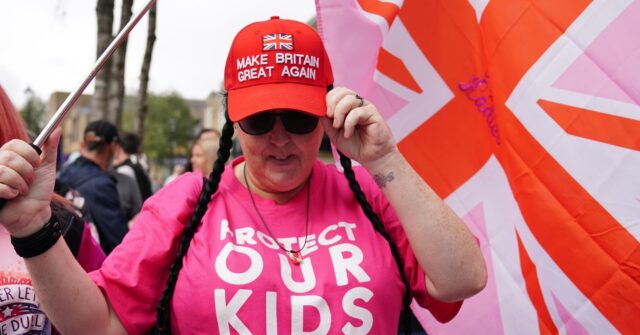British civil servants are reportedly being trained on how to monitor and push back against so-called “high-risk narratives” on social media, such as posts opposing the mass migration agenda imposed on the country.
A deep state team within the Cabinet Office, the Government Communications Service (GCS), has been tasked by the government with combating supposed “disinformation” while simultaneously promoting the government line through “counter-narratives” online.
The scheme, dubbed the “Resist framework”, according to London’s Daily Telegraph, has trained bureaucrats on how to spot “high-risk narratives” such as posts online raising concern about community housing, which could negatively impact “new migrants” or ethnic minorities in the country.
Established during nationwide protests against the government’s migrant hotel scheme, which broke out in the wake of an illegal from Ethiopia sexually assaulting a 14-year-old girl while he was housed in a hotel in Epping. Currently, the government is housing around 32,000 mostly young and unvetted illegal males in hotels across the country on the taxpayers’ dime.
During the unrest, the GCS reportedly contracted social media monitoring firm Storyzy for £36,000 to train civil servants to spot posts that could “deepen existing community divisions and create new tensions between different groups.”
Examples of themes to be on the lookout for included warnings that “certain communities are getting priority housing while local families wait yearsˮ or “the council is secretly planning to build hundreds of units that will change our neighbourhood”.
They also were told to watch out for “harmful speech” from people like “representatives of a local parental association” who may post “links to some low-quality online local news sites as ‘proof’ of their arguments” or who create private groups for “concerned local citizens and encourage like-minded people to join”.
Advice was also given to local councils on how to deal with anger over “the arrival of asylum seekers settling in hotels and vacant military bases” and “the sudden closure of the town’s hotel to accommodate asylum seekers”. Councils were told that they should focus on “prebunking” so-called disinformation surrounding the hotel migrant scheme.
Responding to the report, Reform UK MP Lee Anderson said: “This government has allowed the largest invasion of our shores in modern history. It deserves full scrutiny, and the British people have every right to do so.
“This is a nation that has led the world in free speech for hundreds of years. It is a tragedy to see this Labour government bringing that to an end.
“We must return to a government that serves the best interests of its citizens and does not penalise them for speaking their minds. Only Reform will make that a reality.”
Meanwhile, Lewis Brackpool, the director of investigations for the Restore Britain political movement established by Independent MP Rupert Lowe, said that the group has filed “coordinated series of Freedom of Information requests” to “uncover the full scale, structure and purpose of this monitoring programme, and to establish exactly what the state is tracking, how it defines ‘high-risk narratives’, and who authorised it.”
For its part, the government said: “We are committed to protecting people online while upholding freedom of expression, to ensure the internet does not serve as a haven for those looking to spread harm, both online and offline.”
The government cited the recently implemented Online Safety Act, which not only criminalises “illegal false communications” but also allows for the British broadcasting regulator Ofcom to levy hefty fines against social media platforms that fail to police misinformation and hate speech on their own platforms.
Even before the passage of the latest censorship law, British governments have been active in censoring dissident voices, notably coordinating with social media companies to monitor and silence critics of the draconian lockdowns imposed on the country during the Chinese coronavirus crisis.


